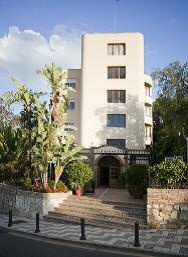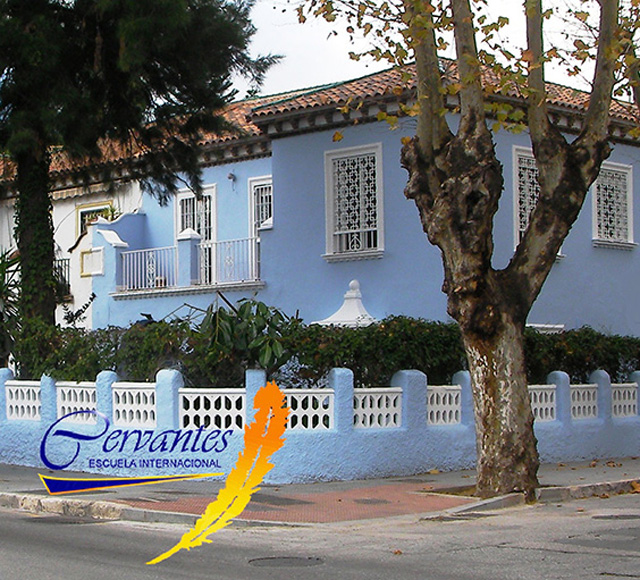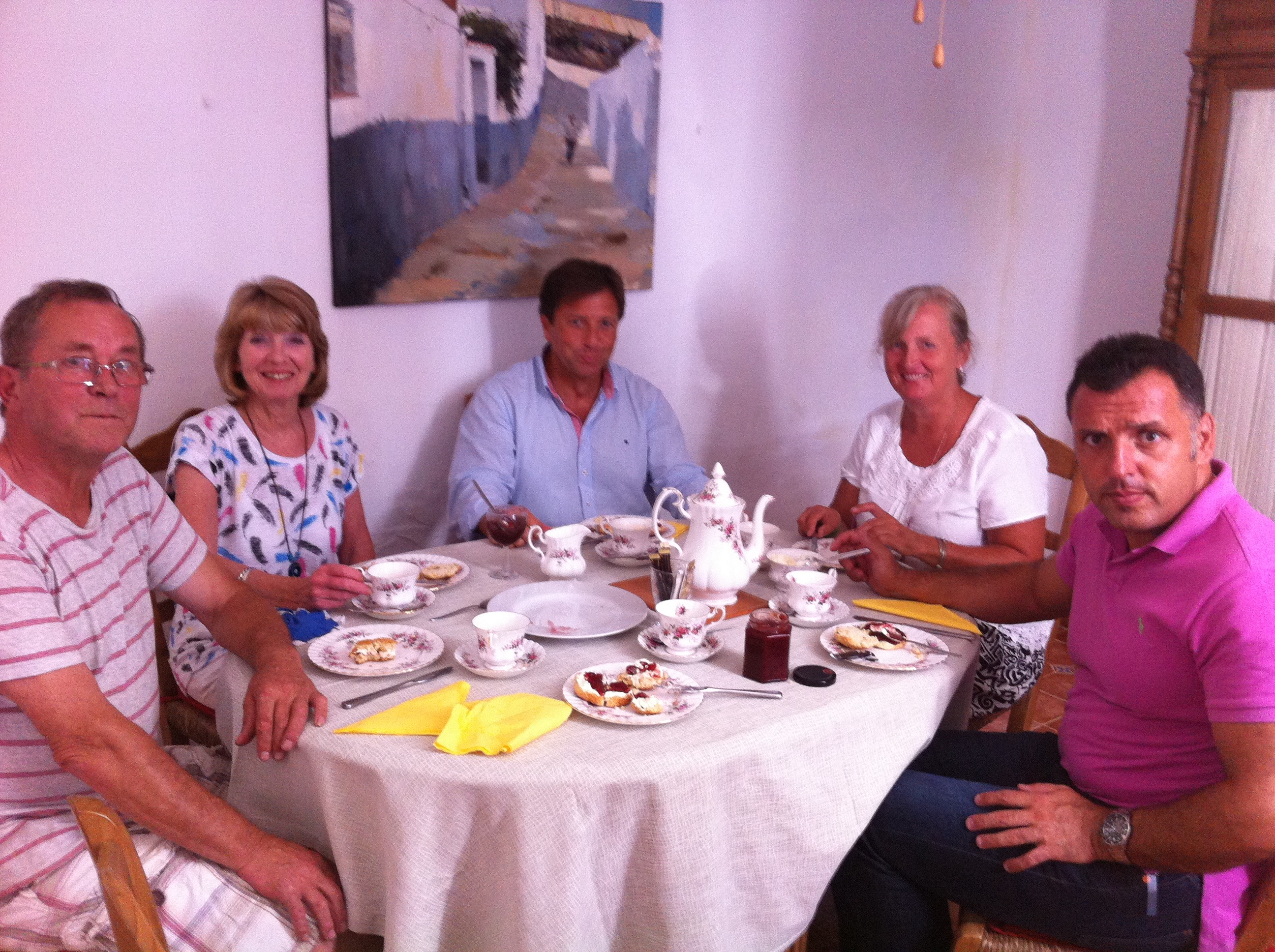118 - Fare Ye Well
Thursday, September 18, 2014
You don't change your politics when you change location. Your world vision. Your core beliefs. Those thoughts and behaviours which demonstrate your ethics, your personality, your essence. So, for example, as a supporter of local food in Dorset, I continue to avoid supermarkets and items with high air-miles, now that I live in Spain. I seek out green groups and community organisations, and charities that help immigrants. And of course in terms of left and right, nothing changes. So it never occurred to me that location has an impact on one's politics, until this month.
 Since living in Spain, the Catalunyan independence debate has been a fascinating topic of conversation, and I have been teasing out the similarities and the differences between their process and that going on in Scotland. Both independence campaigns have been discussed in depth with Spanish-speaking and English-speaking friends. Both with the same degree of slight detachment. Until this month. Since living in Spain, the Catalunyan independence debate has been a fascinating topic of conversation, and I have been teasing out the similarities and the differences between their process and that going on in Scotland. Both independence campaigns have been discussed in depth with Spanish-speaking and English-speaking friends. Both with the same degree of slight detachment. Until this month.
Everyone will remember the day it all changed. Suddenly last week the Yes campaign took the lead in the polls in Scotland. The Westminster government stepped up their "dirty tricks" campaign a dozen notches. And I finally worked out why I had struggled for my own clear position.
 It's all about location. I know myself well enough to know that if I were Scottish I would have been fighting for independence for years. If I were living in Scotland I would have been just as frustrated by the ignorant and distant London-based government(s) and would have not only joined the Yes campaign but would have been an activist, out there speaking and persuading on the doorsteps. It's what I do. It's who I am. It's all about location. I know myself well enough to know that if I were Scottish I would have been fighting for independence for years. If I were living in Scotland I would have been just as frustrated by the ignorant and distant London-based government(s) and would have not only joined the Yes campaign but would have been an activist, out there speaking and persuading on the doorsteps. It's what I do. It's who I am.
But I'm not Scottish, and I don't live in Scotland. So the only perspective I actually have is that of an English woman living outside the currently-United Kingdom. And living abroad changes your perspective. I don't know why, but it does. Absence makes the heart grow fonder? The part of me that is forever England? And is there honey still for tea? A friend's stunningly-beautiful picture of the Dorset countryside on Facebook made my heart leap - an actual physical feeling of nostalgia, of longing. And I'm sad. Sad that the union between nations, that has kept Scotland and England together since 1707, will probably end today.
It will affect me far less than it will the Scottish people. I don't really know how it will affect me except that that wonderful country to the north, whose highlands and islands I explored for a month every year throughout the 1980s, will feel more distant and less connected. I'm sure the minor administrative issues will all be resolved, but the connection will be severed. My Scottish friends will still be friends, but something will be lost.
 This isn't how I think I ought to feel. But I can't help it. It turns out I have a fondness for things that have lasted a long time, and though the relationship between Scotland and England has had its ups and downs, it has lasted 307 years. I don't know today's result yet, but I have a feeling we are about to be dis-united. And at the same time as being delighted for them, I am sad for me and for England. We are the poorer for their loss. This isn't how I think I ought to feel. But I can't help it. It turns out I have a fondness for things that have lasted a long time, and though the relationship between Scotland and England has had its ups and downs, it has lasted 307 years. I don't know today's result yet, but I have a feeling we are about to be dis-united. And at the same time as being delighted for them, I am sad for me and for England. We are the poorer for their loss.
© Tamara Essex 2014 http://www.twocampos.com
THIS WEEK'S LANGUAGE POINT:
Another multi-layered sentence, following on from last week:
El último fin de semana que pasamos en Sevilla no hubiera sido tan cansado si no hubiera hecho tanto calor y no hubiera habido tanta gente en el hotel, ¿verdad?
The last weekend we spent in Seville wouldn’t have been so tiring if it hadn’t been so hot and there hand’t been so many people in the hotel, would it?
A sentence like this is good for memorising and saying aloud over and over in the car to really get the construction into your head.
 1
Like
Published at 9:05 AM Comments (2)
1
Like
Published at 9:05 AM Comments (2)
117 - How Not to Sell Spanish Lessons
Thursday, September 11, 2014
I’m not a salesperson. I vaguely remember working in some sort of coffee bar as a school student in Sydney, but as far as I recall I've never worked in a shop. I was a freelance trainer and consultant for 18 years so I suppose I had to "sell" myself to potential new clients, but I certainly don't claim to know much about selling.
As a buyer, I reckon I'm fairly easy to sell to. I tend to know pretty much what I want, but am happy to be guided by someone with expertise, to amend my initial thoughts. And I don't mind a reasonable bit of up-selling (when they manage to sell you something more than you thought you wanted).
And last month I was easy pickings. I was in the market for some intensive Spanish lessons, in order to make sure I pass my B1 exam in November. I don't want to fail by a snidge and have to re-take it. So I was open to persuasion. I set off to Pedregalejo and El Palo to visit three language schools.
 Obviously, before going to visit the schools, I had established what exam I wanted to take, and that I was (more or less) at the right level to take it. I had done 5 or 6 online tests, including the Instituto de Cervantes test (click here to take the test yourself) and most had placed me firmly at B1. Further, in my local language school we are on the final chapter of the B1 text book and we are about to begin the revision of what we have learned. So the evidence was suggesting that with a bit of extra work, I should be able to have a reasonable stab at the B1 exam. Obviously, before going to visit the schools, I had established what exam I wanted to take, and that I was (more or less) at the right level to take it. I had done 5 or 6 online tests, including the Instituto de Cervantes test (click here to take the test yourself) and most had placed me firmly at B1. Further, in my local language school we are on the final chapter of the B1 text book and we are about to begin the revision of what we have learned. So the evidence was suggesting that with a bit of extra work, I should be able to have a reasonable stab at the B1 exam.
I went into the first school (which shall remain nameless). I was second in line at Reception. The young receptionist was having some difficulty with the student in front of me - the student was speaking a low level of Spanish with a strong Chinese accent, and the receptionist was speaking better Spanish with a strong Thai accent, and neither was understanding the other. The receptionist ignored me. When she had finished with the student, he left and she flopped back onto her computer and continued her work. That's assuming that her "work" involved Facebook. I waited. After a while I coughed. After a while longer I said "Perdona!" and she turned round, looking surprised to see me, though I had been right in front of her when the student left. When I explained I wanted to book a course of intensive lessons prior to doing the B1 exam, she said that the person I needed to speak to wasn't there. She didn't seem inclined to tell me when they would be there. When I asked if she could give me an idea of prices and dates for the B1 preparation, she said no and returned to Facebook without giving me the chance to ask any further questions. I left.
I went to the second school (which shall also remain nameless). It was very smart. There were no less than THREE people on reception, none were playing on Facebook, and all gave me big professional welcoming smiles. This was a better start. Yes, they confirmed, they could offer me an intensive pre-exam course. I would need to take their test to check my level. Would I like to do it now? Ah. That was slightly unexpected. But I had the time, so why not? They printed it off and sent me round to the attractive garden.
 The test was hard and dented my confidence, but I struggled through to the final page and went back to Reception. They sent me straight up to the Director of Studies, who explained that she would email me an analysis of my level, and what support I would need in order to pass the exam. She reassured me that my conversational level was good and that the school would definitely be able to help me get through the B1 exam. The test was hard and dented my confidence, but I struggled through to the final page and went back to Reception. They sent me straight up to the Director of Studies, who explained that she would email me an analysis of my level, and what support I would need in order to pass the exam. She reassured me that my conversational level was good and that the school would definitely be able to help me get through the B1 exam.
Two days later the email arrived. It said that I still have problems remembering when to use SER and when to use ESTAR. True. It said that my past tenses sometimes were a muddle. True. It said that I needed 6-8 weeks of intensive lessons before they would put me on the compulsory two-week B1 preparation course. It said they could do all this for me for a little under €2,000 though this didn't include the exam fee or the text books. Basically I am a disaster and haven't a hope of passing without massive (and expensive) help from them.
Well, it's a tactic that probably works. Some of the time. Perhaps other students haven't done QUITE so many online tests as I have. Perhaps some students hadn't discussed it in advance with their local Spanish teacher. Perhaps some students just like throwing money at language schools. I don't. I suppose someone has to pay for the three receptionists (but it won't be me).
I went to the third school. Reception was empty at first but a nice young man bustled out of a side-room on hearing the front door. He apologised, waved the water he had just got himself, and offered me a glass too. I explained my story. He laughed when I said that I was a bit odd and actually quite like exams. He understood that I don't need the qualification for work, it's only for fun. He went and got the Head of Studies and she said she'd be delighted to help me pass the exam. We talked about the two-week exam preparation course, and I asked if I might be able to do just the second week. Just from chatting and a few questions to demonstrate past and future tenses, she said that yes, my level was fine, and all I needed was some tricks to pass the exam, rather than any formal grammar lessons. For  that reason she suggested a few private lessons, as she said the group classes would probably be a bit boring. Flattery, as always, worked a dream and I agreed to the idea of private classes. I said I'd go away and think about it. I went back a fortnight later and the man on reception welcomed me like a long-lost friend. The Head of Studies invited me in to meet the Director of the School and we chatted a bit more. She said I should pass easily, and they would be interested in helping me afterwards, to prepare me for B2. Scary, but good to know they feel positive. I signed up for the exam preparation (a few private classes) there at Cervantes Escuela Internacional, and for the exam in November. that reason she suggested a few private lessons, as she said the group classes would probably be a bit boring. Flattery, as always, worked a dream and I agreed to the idea of private classes. I said I'd go away and think about it. I went back a fortnight later and the man on reception welcomed me like a long-lost friend. The Head of Studies invited me in to meet the Director of the School and we chatted a bit more. She said I should pass easily, and they would be interested in helping me afterwards, to prepare me for B2. Scary, but good to know they feel positive. I signed up for the exam preparation (a few private classes) there at Cervantes Escuela Internacional, and for the exam in November.
So what works best? Ignore the student? Bully the student and scare them into signing up for 8-10 weeks of lessons they don't need? Or flatter them? Yeah, maybe I am that naive. Maybe I fell for a well-rehearsed sales technique. I'll never know for sure. But I liked the people so that's where I want to spend my money.
© Tamara Essex 2014 http://www.twocampos.com
THIS WEEK’S LANGUAGE POINT:
Jose has given me a copy of a long list of really complex sentences. Piling the verbs on. Gulp.
Last week, he said that he didn't remember having spent anything on books or paper, but you think he was telling a lie, don't you?
La semana pasada, dijo que no se acordaba de haber gastado nada en libros o en papel, pero tú crees que mentía, ¿verdad?
Diana's sister told him that there were so many people in the bar that she had taken twenty minutes to pay for the drinks and another five to make the calls.
La hermana de Diana le dijo que había tanta gente en el bar que había tardado veinte minutos en pagar las bebidas y otros cinco en hacer las llamadas.
They look frightening but are very helpful for stringing verbs together and for saying aloud in the car on the way to the beach!
 0
Like
Published at 7:44 PM Comments (3)
0
Like
Published at 7:44 PM Comments (3)
116 - And is There Honey Still for Tea?
Thursday, September 4, 2014
So why did it become so interesting, the Ashya King story? The little boy with cancer, whose parents were arrested in Spain after a European Arrest Warrant was issued? Human interest, of course, and the added interest that the family was found in the Axarquía region.
My Spanish friends were largely uninterested in the story. Noticing on Facebook that I was following it closely, they asked me why. I didn't have an answer. Is it really simply because it was a British family? If I dig down deep, and ask myself if I would have been as interested if it were an Australian family or an Estonian family, would I really have followed it as it developed hour by hour? The uncomfortable truth is that probably I wouldn't have.
Nobody I know knew the family. I have never been to Southampton Hospital (from where his parents took him). Although a good friend lives nearby, I have never been to the small Axarquía village where the family checked into a hostel, only to be recognised and picked up by the Spanish police. Yet I followed it avidly on Sky News and Facebook, engaged in arguments about it, and signed an online petition.
 It would be easy to decide that the key point that triggered my interest was them being found in the Axarquía. But I believe that the truth is simply that they are a British family. And on Facebook groups and other internet forums British people gathered to discuss the constantly-developing news, up to the lovely moment when the parents, released by a Spanish judge, arrived at the hospital in Málaga finally to be reunited with their 5-year old son. It would be easy to decide that the key point that triggered my interest was them being found in the Axarquía. But I believe that the truth is simply that they are a British family. And on Facebook groups and other internet forums British people gathered to discuss the constantly-developing news, up to the lovely moment when the parents, released by a Spanish judge, arrived at the hospital in Málaga finally to be reunited with their 5-year old son.
So what was it it? Was it patriotism? Hoping for the best for a fellow Brit? Was it righteous anger at British institutions, that anger that only we Brits can express with such passion? Was it some deep and forgotten Britishness that clawed its way to the surface to stand shoulder to shoulder with a British family in need?
The week before, I'd been helping two Spanish friends prepare for their English exams, by organising an English "immersion" week. David's work takes him abroad a great deal, including almost a year in Bosnia. I asked him what he missed most about Spain when he was over there. He waved his hands and rattled off "the usual things" such as his family, the sea, the football and the sunshine. Then he thought seriously. "Truly?" he said .... "What I missed most, out of everything that Spain means to me, is the long lunch-time." He wasn't being flippant. Every afternoon his thoughts turned to Spain and he knew that people were closing their shops, leaving their offices, and going to spend a comfortable two or three hours chin-wagging over some beers and some tapas, relaxing, and forgetting about day-to-day problems or the economic crisis. The long lunch summed up, for him, the lifestyle he missed when abroad.
It doesn't really matter what it is. But it seems to me that regardless of where we are, a little part inside us will be forever England. When it does pop up, it surprises me. I couldn't be less of a flag-waving patriot in the usual sense. I'm not a monarchist.  I'm generally against wars and empires. Maybe distance brings it out more strongly. A friend and I read some English poetry at a "Proper English Tea Party" I organised during David and Jose's English immersion week, and hearing that most English of lines "Yet stands the church clock at ten to three? And is there honey still for tea?" read in an impeccable English accent, twisted something in my stomach (I don't think it was the cucumber sandwiches) and I felt a dampness behind the eyes. I'm generally against wars and empires. Maybe distance brings it out more strongly. A friend and I read some English poetry at a "Proper English Tea Party" I organised during David and Jose's English immersion week, and hearing that most English of lines "Yet stands the church clock at ten to three? And is there honey still for tea?" read in an impeccable English accent, twisted something in my stomach (I don't think it was the cucumber sandwiches) and I felt a dampness behind the eyes.
 Right now it feels dangerous to think about patriotism or nationalism. It smacks of "Britain First", UKIP and the other far-right groupings. But like it or not, it seems that the plight of an unknown family who just happened to be born on the same tiny island group as me, triggered something that cannot be buried completely however European I feel and however much I support ideas of One World and one human race. For David, in an unimaginably uncomfortable situation in Bosnia, his mind wandered to the bars of Málaga and people taking their time over their lunch. And for me, what keeps me rooted is the knowledge that thanks to Rupert Brooke the church clock will always stand at ten to three, and yes, there IS honey, still, for tea. Right now it feels dangerous to think about patriotism or nationalism. It smacks of "Britain First", UKIP and the other far-right groupings. But like it or not, it seems that the plight of an unknown family who just happened to be born on the same tiny island group as me, triggered something that cannot be buried completely however European I feel and however much I support ideas of One World and one human race. For David, in an unimaginably uncomfortable situation in Bosnia, his mind wandered to the bars of Málaga and people taking their time over their lunch. And for me, what keeps me rooted is the knowledge that thanks to Rupert Brooke the church clock will always stand at ten to three, and yes, there IS honey, still, for tea.
© Tamara Essex 2014 www.twocampos.com
THIS WEEK'S LANGUAGE POINT:
Subtle differences in past conditionals -
Si hubieran escuchado la radio esta mañana, sabrían que podría llover esta tarde, ¿verdad? - If they had listened to the radio this morning, they would know that it may rain this afternoon, wouldn’t they?
This SEEMS to me to be more commonly-used in Spain. Though more natural to me (translating from English instead of thinking directly in Spanish) would be to say:
Si hubieran escuchado la radio esta mañana, habrían sabido que podría llover esta tarde, ¿verdad? - If they had listened to the radio this morning, they would have known that it may rain this afternoon, wouldn’t they?
 0
Like
Published at 4:59 PM Comments (5)
0
Like
Published at 4:59 PM Comments (5)
Spam post or Abuse? Please let us know
|
|